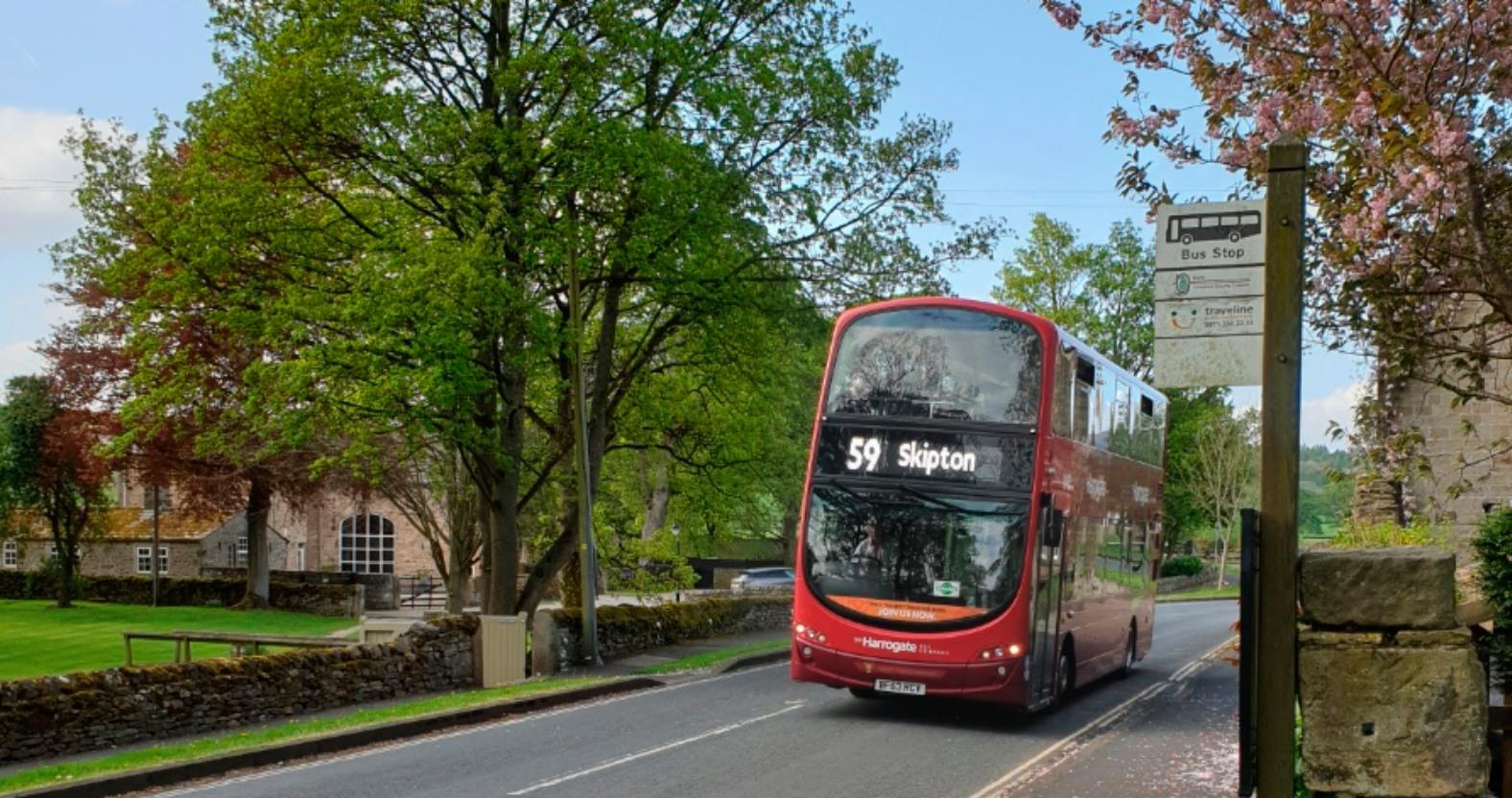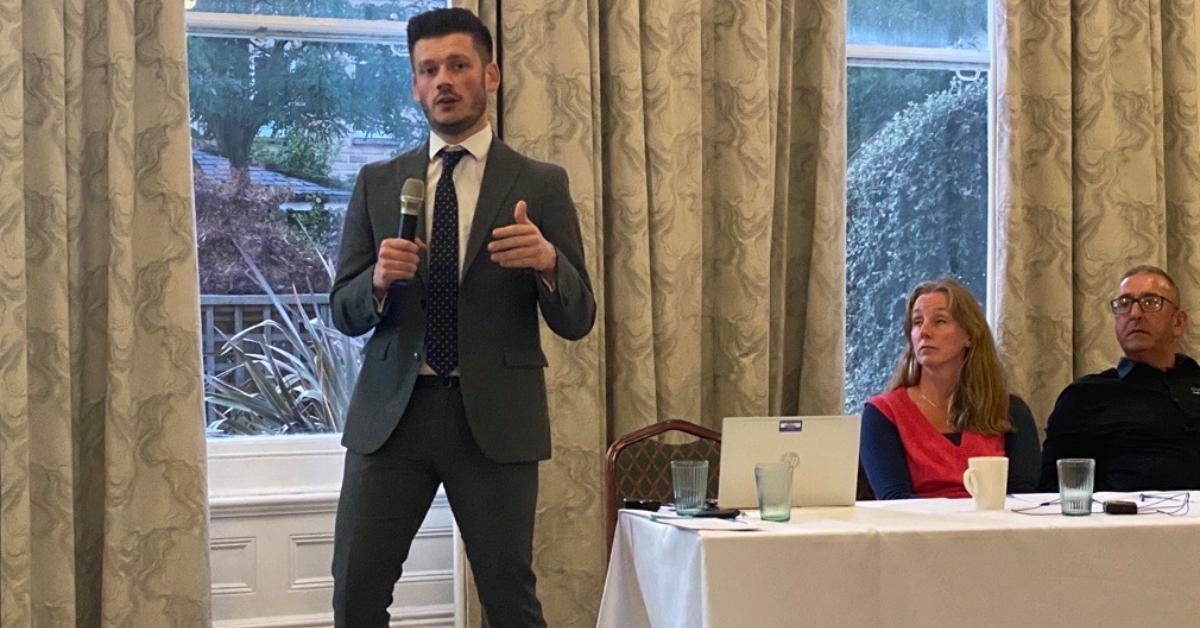Subscribe to trusted local news
If you are accessing this story via Facebook but you are a subscriber then you will be unable to access the story. Facebook wants you to stay and read in the app and your login details are not shared with Facebook. If you experience problems with accessing the news but have subscribed, please contact subscriptions@thestrayferret.co.uk. In a time of both misinformation and too much information, quality journalism is more crucial than ever. By subscribing, you can help us get the story right.
- Subscription costs less than £1 a week with an annual plan.
Already a subscriber? Log in here.
11
Aug 2024
Uncertain future surrounds £2 fare cap on North Yorkshire’s buses

“A lifeline” was how a £2 fare cap was described for bus services in North Yorkshire when it was introduced last year.
The policy was introduced under the previous Conservative government to much fanfare as campaigners and politicians alike said it would save networks across the district.
Services such as the 24 from Pateley Bridge, which was under threat of being scrapped altogether last year, were among those that benefited from the scheme.
However, uncertainty over the future of services has returned after the government looks to make cutbacks on what it describes as “unfunded policy announcements”.
‘Unfunded policies’
Labour’s Rachel Reeves, chancellor of the exchequer, told the House of Commons the new government had inherited a £22 billion blackhole in its finances.
In order to save money, Ms Reeves set her sights on scrapping transport projects and making the winter fuel allowance means tested.
She also opted to review a range of other “unfunded policy announcements”.
One of them was the extension of the £2 bus fare cap to December 2024 and support for bus networks.
However, rather than give any indication on what ministers plan to do with the scheme, it was simply noted as an "unfunded policy" at a cost of £250 million in a Treasury audit report.
The decision has led to a new wave of uncertainty for funding in North Yorkshire and campaigners have called on the government for clarity.

Matthew Topham, campaigner for Better Buses for North Yorkshire. Picture: Twitter/X
Matthew Topham, campaigner for Better Buses for North Yorkshire, told the Stray Ferret that capping bus fares had indeed been critical for many passengers.
Prior to the cap, some services faced being withdrawn altogether due to plummeting customer numbers after the covid pandemic and a lack of funding.
The Stray Ferret reported extensively on the financial pressures facing services at the time, including saving the 24 bus between Pateley Bridge and Harrogate from being scrapped in January 2023.
The service is crucial for many people in rural parts of Nidderdale, including Birstwith, Darley and Summbridge.
Mr Topham called on the government to invest in the bus fare cap policy and to work with local councils on newly devolved powers, such as bus franchising.
He said:
The bus fare cap has been a lifeline for many communities during the cost-of-living crisis. Contrary to the government's view, investing in this policy would boost economic growth, with every £1 spent on bus subsidies generating over £3 in benefits.
Instead of focusing on cutting beneficial investment, the government must focus on supporting local councils to take public control and ownership of their buses. Each year, millions leak out of the nation's bus routes in dividends to private companies.
This waste must be stopped. In fact, if all councils were supported to set up a new council-owned bus company, researchers have estimated this would save over £506 million a year, more than double the estimated cost of extending the £2 fare, leaving money left over for new routes.
Mayor clarity
The uncertainty surrounding local services has also led to calls for clarity from the newly elected Labour Mayor for York and North Yorkshire, David Skaith.
Cllr Keane Duncan, executive councillor for highways on North Yorkshire Council, raised the matter over uncertain funding at a full council meeting.
He pointed out that the £2 fare cap had led to a 11% increase in passengers on services in the region in 2023.
Cllr Duncan said the lack of clarity from the government had now led to a “cliff edge” and warned that some services in North Yorkshire faced a 600% hike in fares and could “once again be in the perilous financial situation”.

Cllr Keane Duncan.
Currently, North Yorkshire Council is subsidising some services with £3.5 million worth of funding received from government. However, future strategy for the network will be passed onto the combined authority.
During the meeting, Cllr Duncan said no indication had been given by Mayor Skaith or the combined authority on what the strategy would be - such as bus franchising.
This is a power our region has already secured as a result of devolution although we have not yet had any indication from our new mayor as to whether he plans to follow his Labour colleague and move forward with a franchising approach — public control as Labour would call it.
This authority, operators and passengers in the county would find it very helpful to have that clarity from the mayor about his intentions.

David Skaith was elected the first Mayor of York and North Yorkshire on May 3 last year.
Following its historic devolution deal, the mayor and York and North Yorkshire Combined Authority were given powers over local transport services.
This includes a devolved transport settlement, plus the ability to introduce bus franchising - which is in the process of being rolled out in West Yorkshire.
The mayor also has the power to lobby government for funding arrangements over matters such as bus services.
The Stray Ferret asked the combined authority if the mayor had discussed the fare cap and future funding with government and what, if any, assurances they could give passengers over the scheme.
In response, a spokesperson said:
The combined authority’s ambition is to see efficient, affordable public transport services linking people in rural, coastal and urban areas throughout our region.
We also believe the continuity of the existing bus services, delivered through City of York Council and North Yorkshire County Council, are currently the best solution.
At its meeting on July 22, 2024 the combined authority approved the delegation of specific local transport functions, which are currently functions of the combined authority, back to North Yorkshire Council and City of York Council. This enables both authorities to finalise their Bus Service Improvement Plans using the funding for 2024/25, received from the Department for Transport.
These delegations will remain in place until 31 March 2025 and in the meantime the combined authority will look forward to constructive discussions with our region’s bus companies and transport leaders at both local authorities, on subsidised fares, integrated ticketing and franchising.
We also look forward to seeing detailed plans from national government on public transport, and working with the bus and rail industry on how they can benefit residents of York and North Yorkshire.
3